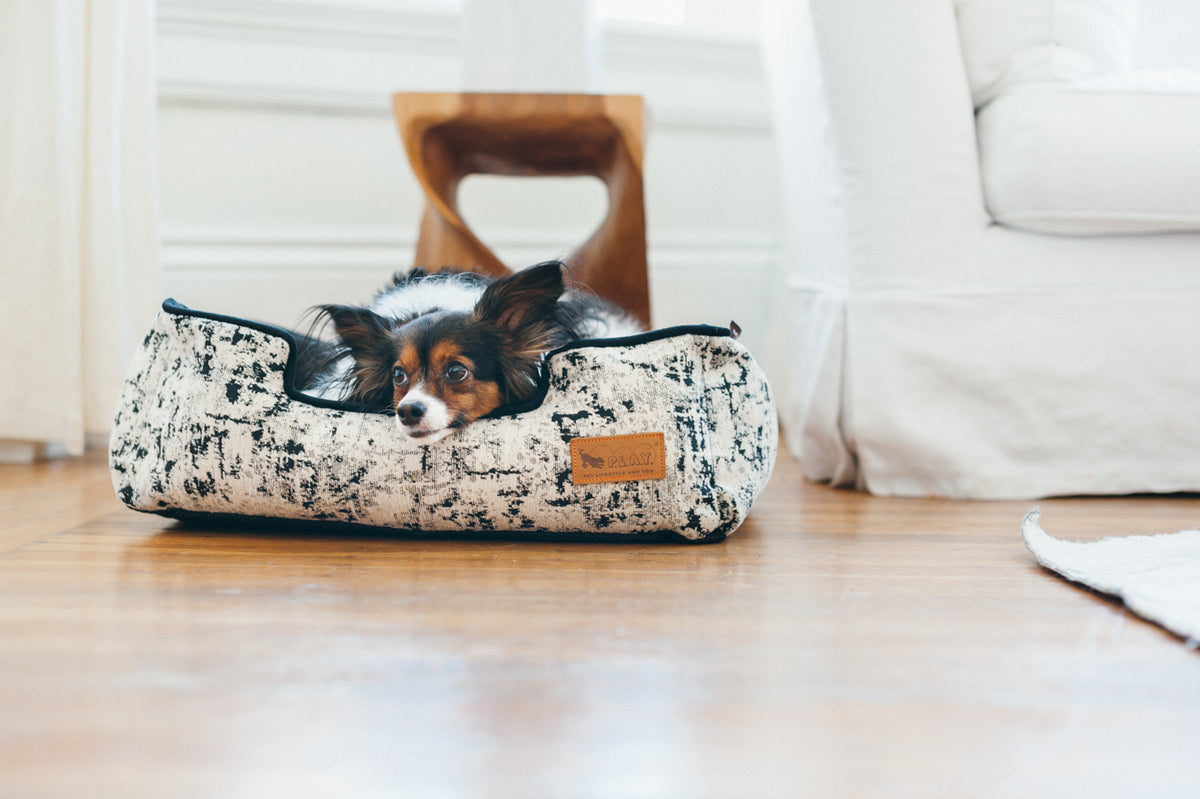The companionship that dogs offer is all but unrivaled. Your pup knows when you’re down and can pick up on subtle cues to help break you out of a funk. Exercising your pooch can significantly improve your physical health too, as playing and walking are essential parts of dog ownership.
As a pet owner, it’s also your job to support your puppy’s health. You have a responsibility to provide care for your furry friend and should treat vet check-ups with the same importance that you treat your own health check-ups.
You can even help your dog overcome trauma and rebuild their ability to trust. This is particularly important if you plan on adopting from a shelter, as some dogs have unfortunate pasts and require plenty of love and affection.
Stress Relief
Modern life is inherently stressful. If you work a fast-paced, high-pressure job you’re more than likely to struggle with burnout and chronic depression. Fear-mongering in the media can exacerbate life’s stressors, too, and make you feel pessimistic about the state of the world today.
However, when you come home to a wagging tale and a thousand loving licks, you’ll feel your stresses start to fade away. While dog ownership isn’t all cuddles and kisses, the companionship your pup brings far outweighs the responsibilities that you’ll incur.
The American Psychiatric Association (APA) recently published a “Healthy Minds Monthly Poll” which echoed this sentiment. The poll found that 86% of dog owners say that their pet has improved their mental health, while a further 66% say that their pooch is a calming presence in their lives.
Your canine companion can not make life’s stressors disappear, but they can help you build resilience and form better self-care habits that last.
Building Self-Care Habits
Self-care is largely overlooked in our fast-paced modern lives. However, taking a moment to prioritize yourself and your needs can be a powerful way to boost your well-being and support your own mental health.
Owning a dog all but guarantees that you’ll take some time for self-care. A pooch can help you build better health habits like:
- Exercise Regularly: You need around two and a half hours of moderate exercise per week. Walking your pup and chasing them around the yard is certain to get your heart racing and is an easy way to improve your health.
- Good Quality Sleep: After the puppy phase is over, your dog can help you get a good night’s rest. Their sleep schedule will keep you in check and help ensure that you go to be on time — after all, you’ll need to wake up early to walk them the next morning!
- Stay Hydrated: Filling up your pup’s water bowl is a good reminder that you also need plenty of H2O. Try to drink as much, or more, water than your pooch and reap the rewards of being well-hydrated.
- Maintain Positive Relationships: Overcoming loneliness can be hard. However, your pooch gives you an easy opportunity to meet new people and form strong bonds over a shared love for dogs and walking.
- Eat Healthily: You wouldn’t feed your dog donuts and ice cream, so don’t do it to yourself. Instead, treat your own diet with the same respect as you treat your dogs and focus on eating nutritious meals three times per day.
Caring for your pooch can easily translate into improved self-care habits and healthier behaviors. Regularly walking your dog can help you meet your neighbors and form stronger community bonds, too. This is particularly useful if you live with a condition like anxiety, as your pup’s calming presence can help you navigate your symptoms.
Managing Trauma and Anxiety
The Anxiety and Depression Association of America recently reported that Generalized Anxiety Disorder (GAD) affects 6.8 million adults. A further 6 million Americans have been diagnosed with Panic Disorder (PD) and 7.7 million adults live with Post-Traumatic Stress Disorder (PTSD). These figures emphasize the importance of getting help with trauma and anxiety, particularly as many folks have more than one condition related to anxiety.
Dogs aren’t a “cure” for GAD, PD, or PTSD, but they can help you better manage your symptoms. The reassuring presence of a pooch can be a powerful change in your life that helps you live however you want to live. A dog can be particularly helpful if you’re undergoing trauma therapy, as engaging in Human-Animal Interaction can reduce the severity of your symptoms and give you the confidence to proceed with treatment.
It’s worth pointing out that some dogs have anxiety and trauma-related conditions of their own. As an owner, you can help your pooch navigate their symptoms and alleviate the stress they feel by providing a stable, calm home for them. Keep them in mind when you plan to leave for extended periods and provide plenty of stimulus (toys, games, dog sitters) to keep them occupied.
If your pooch does have anxiety, you can also explore training and medication. Speak with your veterinarian before administering any form of medical treatment as they’ll be able to create an effective treatment plan.
Depression and Companionship
The National Institute for Mental Health’s “National Survey on Drug Use and Health” found that 21 million Americans have Major Depression. Only 66% of folks with Major Depression were able to receive treatment for their condition, meaning that 13.86 million do not receive the help they need.
A dog is not a replacement for therapy and mental health counseling. However, your pooch can help you by supporting you when depression takes over. The supportive presence of a pup can be particularly helpful if you find yourself crying a lot. Surprisingly, crying is good for your health as tearing up releases hormones that ease pain and renew your emotions. However, coming out of a tearful episode alone can be a jarring experience.
Your pup can help you cry and alleviate some of the symptoms that you feel during a depressive episode. A recent study titled “The Role of Oxytocin in the Dog–Owner Relationship” found that petting and cuddling your dog releases a surge of oxytocin. This can help you form stronger attachments and will give you the same reassured feeling that a trusting relationship with a human provides. This can be particularly powerful if you’ve recently found yourself alone and are struggling without the presence of a partner.
Aging with Grace
Aging is a natural process that can cause a great deal of mental stress and strife. As your body grows older, you may find that you can’t do the things you used to love and could feel a little out-of-place without work or other responsibilities.
Caring for a dog can renew your sense of purpose and help you appreciate your golden years. You’ll have plenty to do every day when you need to care for a pup. Caring for a dog will keep you on your toes and help you reconnect with friends that you haven’t seen in some time.
A pooch can be a particularly good idea if you’re a little lonely in later life. Loneliness can undermine your mental health and completely derail your day-to-day well-being. The close companionship that a dog provides can protect you against isolation and help you fight off the mental decline associated with being alone.
Conclusion
Dogs are wonderful for your mental health and can significantly improve your quality of life. However, it’s important to remember that you share a symbiotic relationship and need to take care of their mental health, too. Consider speaking to your veterinarian if you suspect your pup has anxiety or depression and create a calming space that helps you both find a sense of peace.







